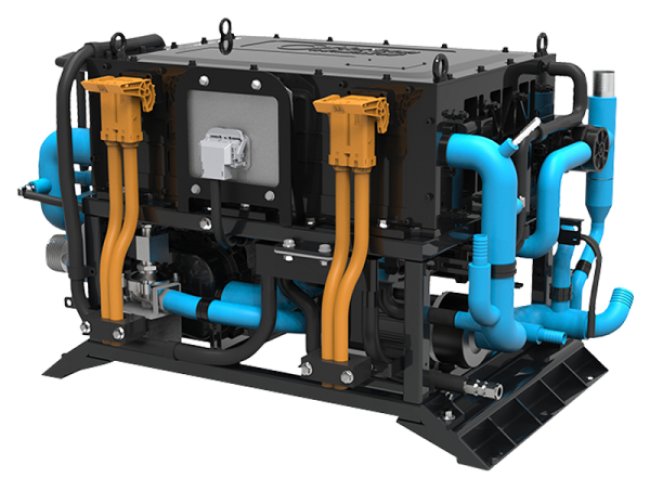Are Cheap Fuel Cells Worth It?
While fuel cell stacks are currently seen as an expensive choice for renewable energy production – recently the market has seen a rise in cheap fuel cell stacks. As opposed to having a price point of $ 1000 or even $ 10,000 – as of 2023, it’s possible to buy a fuel cell for as little as $ 60. So the question then becomes: are these cheap fuel cells worth it?
In this article we’ll take you through all you need to know about the pros and cons of cheap fuel cells – covering the benefits and drawbacks of investing in a less expensive option of this exciting renewable energy technology.
Drawbacks of Buying a Cheap Fuel Cell
Lower Efficiency:
One of the first things users discover about cheap fuel cells is that they often have lower efficiency. This means they convert a smaller percentage of their fuel’s energy into usable electricity – meaning worse overall performance. While some high-end fuel cell stacks – such as the H-1000 XP Fuel Cell Stack – can convert upwards of 59% of its fuel into electricity, a cheap fuel cell system will achieve significantly less than this.


Reduced Durability:
An inexpensive fuel cell will often be built from cheaper materials, and with manufacturers using less expensive production techniques the fuel cells built can often have shorter lifespans and need more frequent service and replacements of parts. This is why it's always critical to find a reputable manufacturer when buying a less expensive fuel cell.
Limited Power Output:
Cheap fuel cells are known for having lower power output capacities. This means that while they can be useful for applications that don’t require a high power output, they’re unsuitable for a variety of critical applications that demand more power.
Reliability Problems:
Low-quality components (often used in less expensive fuel cells) can lead to operational issues. This often results from lower-quality control during production and suboptimal design – both of which have the potential to lead to substantial issues with reliability.
Lack of Advanced Features:
Cheap fuel cells may also lack advanced features that can make their operation easier and more user-friendly. Integrated safety systems, advanced control systems and enhanced connectivity options are just some of the features that high-end fuel cells feature. Spending less money on a fuel cell will likely result in a system that is more ‘bare bones’, lacking advanced features that define expensive fuel cells.
The Benefits of Cheap Fuel Cells: Why They’re Worth It
While the word ‘cheap fuel cell’ can evoke negative connotations – such as systems of poor quality and design – there are an array of benefits to buying a less expensive fuel cell.
Accessible for All:
While it might seem obvious – less expensive fuel cells are significantly more affordable, vastly increasing their accessibility. While richer nations have access to this cutting-edge technology, developing countries will rely on fuel cells being affordable, assessable, and readily available. Cheap fuel cells thus have the potential to revolutionize access to clean energy in developing countries – especially in remote rural regions.
Increased Adoption:
Researchers are constantly creating cheaper fuel cells that will be adopted by an increasing number of people. A team of European researchers, led by scientists from Imperial College London, have recently developed a cost-effective catalyst made of just iron, carbon, and nitrogen (significantly cheaper than the platinum which is usually used). They have successfully demonstrated that this catalyst can be used to power a fuel cell at high levels of performance.
“Currently, around 60% of the cost of a single fuel cell is the platinum for the catalyst,” said Professor Anthony Kucernak, from the Department of Chemistry at Imperial College London. “To make fuel cells a real viable alternative to fossil-fuel-powered vehicles, for example, we need to bring that cost down”.
Research breakthroughs like these – lowering the cost of key components of fuel cells – mean cheaper fuel cells for consumers and increased adoption worldwide.
Portable Power:
Cheap fuel cells can be designed to be portable, lightweight and easily transportable. This means they can be integrated into a variety of applications like portable electronic devices, small appliances and small electric vehicles. One of the most interesting applications for cheap portable fuel cells is in drones. While portable drones have become part of daily life for many people, most are battery-powered, which means they have a severely limited flight time (with the average being only 22 minutes).
Portable fuel cell technology promises to solve this problem, and fuel cell-powered drones are currently able to stay in the air for over 5 hours. Cheap, portable fuel cells therefore have the potential to not only decarbonize an array of technologies – but offer significant advantages compared to other portable power options.
Research and Development (R&D) Opportunities:
One of the most interesting ways cheap fuel cells can be used is through providing a platform for R&D activities. Lower costs mean researchers can use these devices to experiment and drive innovation – creating new prototypes and exploring new designs, materials and manufacturing techniques. This can lead to improved performance and efficiency of updated fuel cells.
Learning Opportunities:
Cheap fuel cells – such as the Horizon PEM Blue Reversible Fuel Cell – allow students of all ages to learn how the technology works first hand. These fuel cells can be integrated into an array of fun and engaging applications, such as self-built tabletop fuel cell cars or science kits. This allows students to gain a practical understanding of not only how a fuel cell operates, but the key scientific concepts behind hydrogen chemistry, mechanical engineering and electrical systems.
Conclusion
Determining if cheap fuel cells are worth buying depends on your specific needs. While low-cost fuel cells have certain drawbacks – such as low power output, reliability problems and lack of advanced features – there are certain key benefits. Cheap fuel cells are assessable, portable, and can lead to increased fuel cell adoption while being great for R&D and education. Putting them to use in education – where students integrate them into renewable energy demonstration projects – is one of the most promising ways of training the next generation of renewable energy leaders at a relatively low cost.

